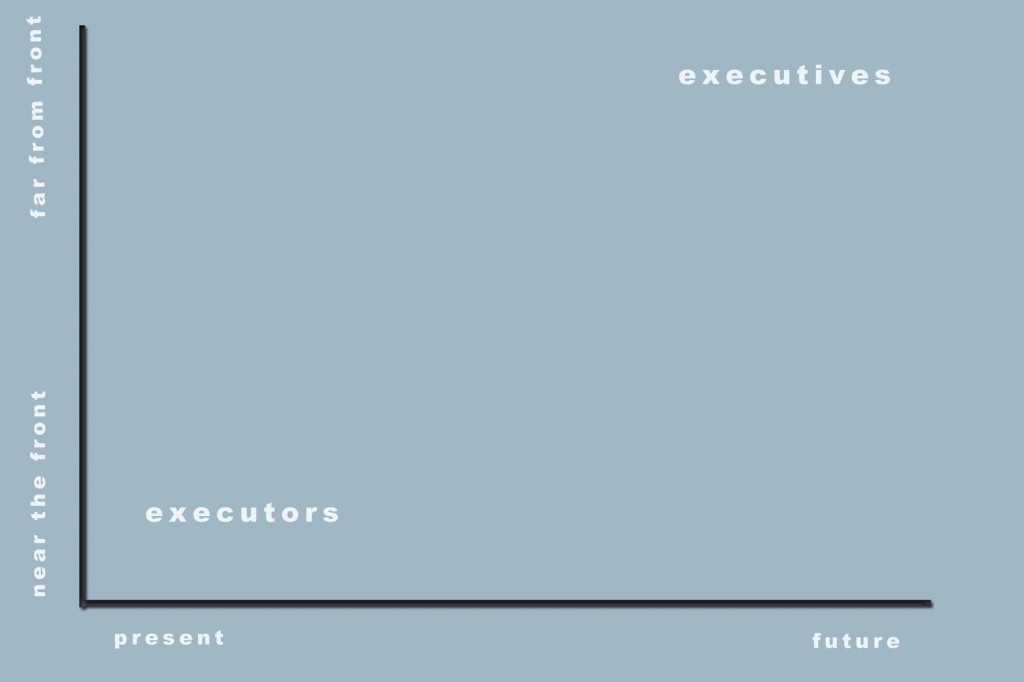Sometimes you sincerely desire to empower someone on your team but doubt whether it would be an encouragement or a burden for them.
Other times you do not want to empower someone even though it may save you time, energy, and deliver better results than if you had made the final call.
I stumbled on a great quote to illuminate when to delegate decision making as a leader:
“Decision making is pushed to the front lines as much as possible.”
This is from Tony Hsieh founder of Zappos.com and author of a new book Delivering Happiness, the full notes from his talk are here.
I almost agree with his statement, but would modify it to read:
Push as many decisions that affect the present (1-3 months) as possible to the front lines, but savor and focus on decisions that affect the future (1-3 years).
I made a quick chart to illustrate why:
Executors are those who feel the needs of the present and have the capacity (skills, character, alignment) to make redemptive changes.
- Passion, emotion, boldness often characterize executors. They are often young relative to the whole.
Executives are those who feel the needs of the future and have the capacity to make redemptive change.
- Wisdom, discernment, and humility characterize executive. The best can say no to something good right now in exchange for something great later.
A whole book could be written on executives who seek to be executors, and vice versa. I will say this based on the graph: Consider the impact of an executive functioning as an executor–not only is he/she taking away a developmental leadership role from a younger leader (and compromising their own legacy), but they are also vacating ownership of the future, undermining the health of the entire movement or ministry.

